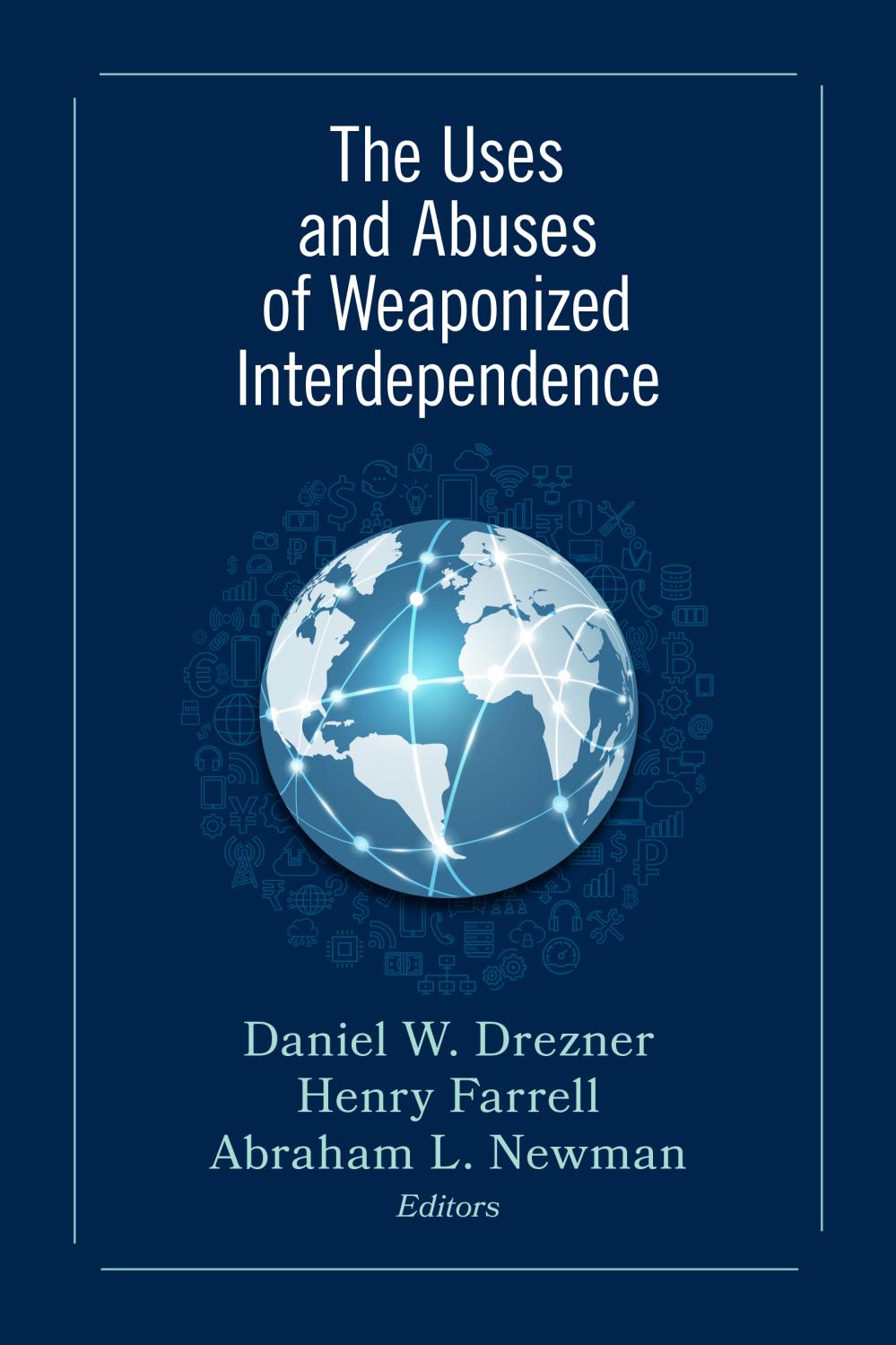When weaponization met interdependence
How globalized information networks can be used for strategic advantage
In exploring the conditions under which China, Russia, and the United States might be expected to weaponize control of information and manipulate the global economy, the contributors to this volume challenge scholars and practitioners to think differently about foreign economic policy, national security, and statecraft for the twenty-first century. The book addresses such questions as: What areas of the global economy are most vulnerable to unilateral control of information and financial networks? How sustainable is the use of weaponized interdependence? What are the possible responses from targeted actors? And how sustainable is the open global economy if weaponized interdependence becomes a default tool for managing international relations?
Praise for The Uses and Abuses of Weaponized Interdependence
“‘Weaponized Interdependence’ is now ‘a thing’ and one of the hot concepts in international relations, and indeed it is an essential idea for understanding the world. This volume has the ideal editors, and it is a wonderful introduction to the topic.”
—Tyler Cowen, professor of economics, George Mason University
“In bilateral relations, states use asymmetrical interdependence to coerce others. In networks with increasing returns to scale, they use ‘weaponized interdependence’ to do so. The Uses and Abuses of Weaponized Interdependence demonstrates the importance of weaponized interdependence in contemporary world politics and is essential reading for scholars and policymakers alike.”—Robert O. Keohane, professor emeritus, Princeton University, and co-author, Power and Independence
“New technologies have been introduced quickly. These new technologies have produced new opportunities for the use of power. The tight relationship between underlying capabilities and the ability to do harm has been severed. The old world is at an end. This volume is at least a beginning on getting some grasp on how this new world will develop.”
—Stephen D. Krasner, Graham H. Stuart Professor of International Relations, Stanford University
Daniel W. Drezner is professor of international politics at the Fletcher School of Law and Diplomacy, Tufts University, and a nonresident senior fellow at the Brookings Institution.
Henry Farrell is the SNF Agora Professor at the Johns Hopkins School of Advanced International Studies.
Abraham L. Newman is a professor in the Edmund A. Walsh School of Foreign Service and Government Department, Georgetown University, and director of the Mortara Center for International Studies.
Media Coverage
The uses and abuses of weaponized interdependence in 2021

